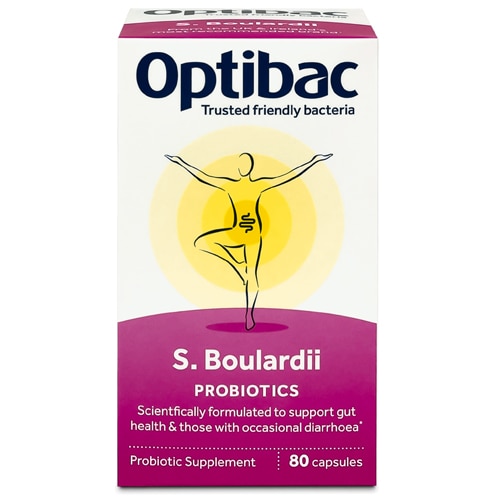[vc_row][vc_column][vc_column_text]If you've ever overdone it on your favorite coffee, you know too much caffeine can cause uncomfortable digestive issues. But smaller amounts of caffeine from coffee and tea may benefit gut health and boost your gut microbiome.

Caffeine and gut health: what to know
If caffeine is actually good for your gut, why does your digestion seem to go crazy after you finish your morning brew?
Drinking coffee stimulates the secretion of hydrochloric acid and gastrin, two key digestive juices in the stomach. Coffee also relaxes pressure in the lower esophageal sphincter. This valve controls the movement of food into the stomach and keeps stomach contents out of the esophagus.
For some people, the combination of more stomach secretions and less sphincter pressure can exacerbate conditions like
indigestion or GERD. However, the link between caffeine consumption and GERD symptoms isn't consistent in research.
Caffeine prompts the release of another digestive compound: the hormone
cholecystokinin (CCK) . CCK signals the pancreas to secrete enzymes that continue digesting carbohydrates, proteins, and fats in the small intestine. The gallbladder responds to CCK with contractions that
release bile to break down fats, aid in fat-soluble vitamin absorption and remove toxins and cholesterol from your body.
And, of course, caffeine can make you have to use the restroom—quickly. Studies show that muscle contractions in the lower part of your colon increase within minutes of drinking coffee. In fact, caffeine appears to increase muscle activity
throughout your digestive system, although it doesn't change the overall speed of digestion.
Does caffeine affect the gut microbiome?
In addition to causing physiological changes, caffeine may interact with the microbes that populate your gut. Research suggests that drinking coffee can:
Compounds in coffee besides caffeine may be responsible for some of these effects. Polyphenols, for example, have been shown to exert antioxidant and anti-inflammatory effects, which can help counteract damage from pro-inflammatory foods, lifestyle habits and gut bacteria.
Caffeine, gut immunity and inflammation
An interesting study out of Brigham and Women's Hospital pointed to another way caffeine may affect gut health. Their research found that xanthine, a compound produced as caffeine breaks down in the body, helps
immune cells called Th17 cells develop and mature.
Th17 cells are part of a group of white blood cells known as T helper cells. These cells regulate immune activity by releasing cytokines, proteins that send signals to other immune cells and prompt either pro- or anti-inflammatory reactions. Most Th17 cells release a pro-inflammatory cytokine called interleukin 17 (IL-17) and may play a role in
autoimmunity and chronic inflammation when their function becomes dysregulated.
However, a
small subset of Th17 cells release anti-inflammatory interleukin 10 (IL-10), which may
offset the pro-inflammatory effects of IL-17. Since the main job of Th17 cells is to
remove pathogens in the gut mucosa, the two cytokines may work together to prompt pro-inflammatory reactions that destroy invading microbes and calm inflammation down once the coast is clear.
Caffeine and gut microbe balance
The Brigham study didn't offer conclusions on whether average caffeine consumption can affect Th17 cells, but
a small study in Nutrients suggests related effects on the gut microbiome. Researchers surveyed 34 people about their caffeine consumption and took colon biopsies to assess their microbiomes.
People who consumed more than 82.9 milligrams of caffeine per day—the equivalent of about one regular cup of coffee—had higher levels of
Faecalibacterium.
Faecalibacterium produces the short-chain fatty acid
butyrate, known for its beneficial effects on inflammation, intestinal barrier health and metabolism.
Caffeine consumers also had lower levels of
Erysipelotrichaceae, a microbe associated with lower risks of obesity and type 2 diabetes. However, caffeine appeared to increase
Alistipes bacteria. Elevated
Alistipes levels may correlate with obesity and are seen in people with gut health problems like ulcerative colitis and IBS pain.
Each of these microbes is found in the gut mucosa—the same mucus barrier that Th17 cells defend and protect. Imbalance or dysfunction in either the microbiome or immune cell activity can increase gut permeability and lead to inflammation, allergic reactions and autoimmune diseases.
More research is needed to determine whether caffeine consumption has an overall positive or negative effect on the gut microbiome and gut immunity.
Is coffee bad for your gut - or good?
So far, science shows that sipping coffee could have small gut health benefits, such as boosting beneficial bacteria and restoring microbial balance. But these effects may not be due to caffeine alone. Several other factors can influence the potential gut benefits of coffee, including roasting and preparation methods.
To maximize caffeine's potential gut health benefits, skip the cream and sugar and drink your coffee black. Sugar can have negative effects on your gut microbiome that
prompt inflammation, and milk may block some of
coffee's beneficial effects.
Caffeinated tea may benefit gut health, too
If you're not a coffee fan, don't fret! Your favorite tea may also boost gut health thanks to compounds called polyphenols that accompany the caffeine.
Green tea in particular has been shown to:
- Promote the growth of beneficial gut microbes
- Reverse dysbiosis and restore microbial balance
- Promote inflammation-regulating microbial populations
- Increase gut bacteria species that support healthy weight maintenance
However you decide to enjoy caffeine, limit your intake to under 400 milligrams per day. Too much caffeine from any source may cause gastrointestinal distress, jitters, restlessness, sleeplessness, or a racing heart—so pay attention to how you react and keep consumption at safe and healthy levels for your body.[/vc_column_text][/vc_column][/vc_row][vc_row][vc_column][vc_text_separator title="Featured Products" border_width="2"][vc_row_inner equal_height="yes" content_placement="middle" gap="35"][vc_column_inner width="1/3"][vc_single_image image="167922" img_size="full" alignment="center" onclick="custom_link" img_link_target="_blank" css=".vc_custom_1690049594872{padding-right: 7% !important;padding-left: 7% !important;}" link="https://www.vitacost.com/numi-organic-tea-organic-gunpowder-green-tea"][/vc_column_inner][vc_column_inner width="1/3"][vc_single_image image="167921" img_size="full" alignment="center" onclick="custom_link" img_link_target="_blank" css=".vc_custom_1690049627458{padding-right: 7% !important;padding-left: 7% !important;}" link="https://www.vitacost.com/terra-origin-healthy-gut-honey-lemon"][/vc_column_inner][vc_column_inner width="1/3"][vc_single_image image="167920" img_size="full" alignment="center" onclick="custom_link" img_link_target="_blank" css=".vc_custom_1690049687859{padding-right: 7% !important;padding-left: 7% !important;}" link="https://www.vitacost.com/the-organic-coffee-co-whole-bean-coffee"][/vc_column_inner][/vc_row_inner][/vc_column][/vc_row]




